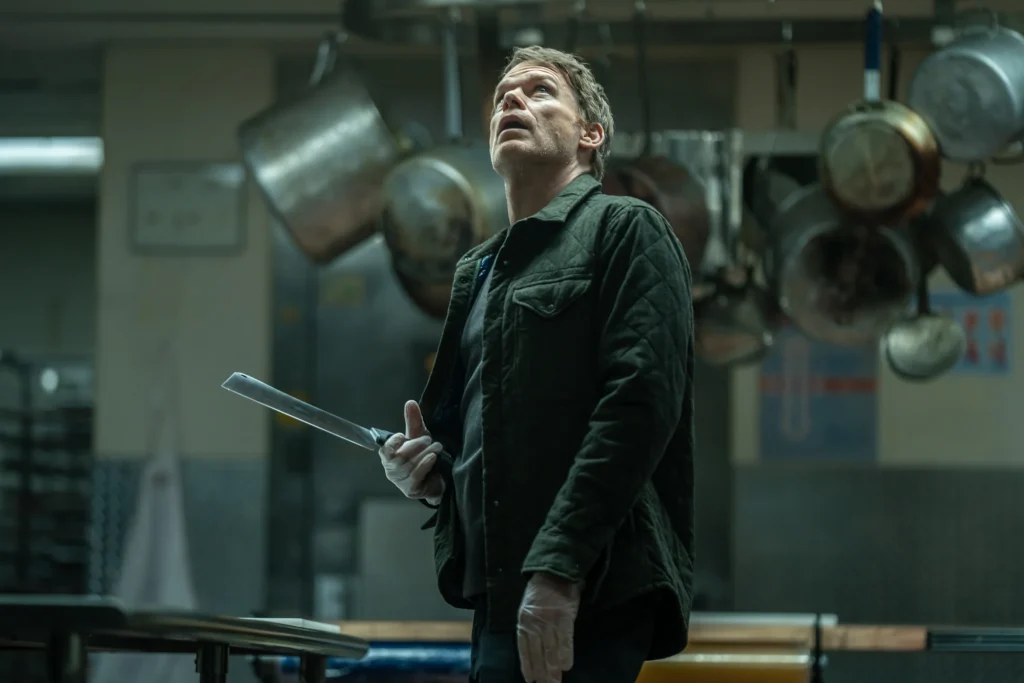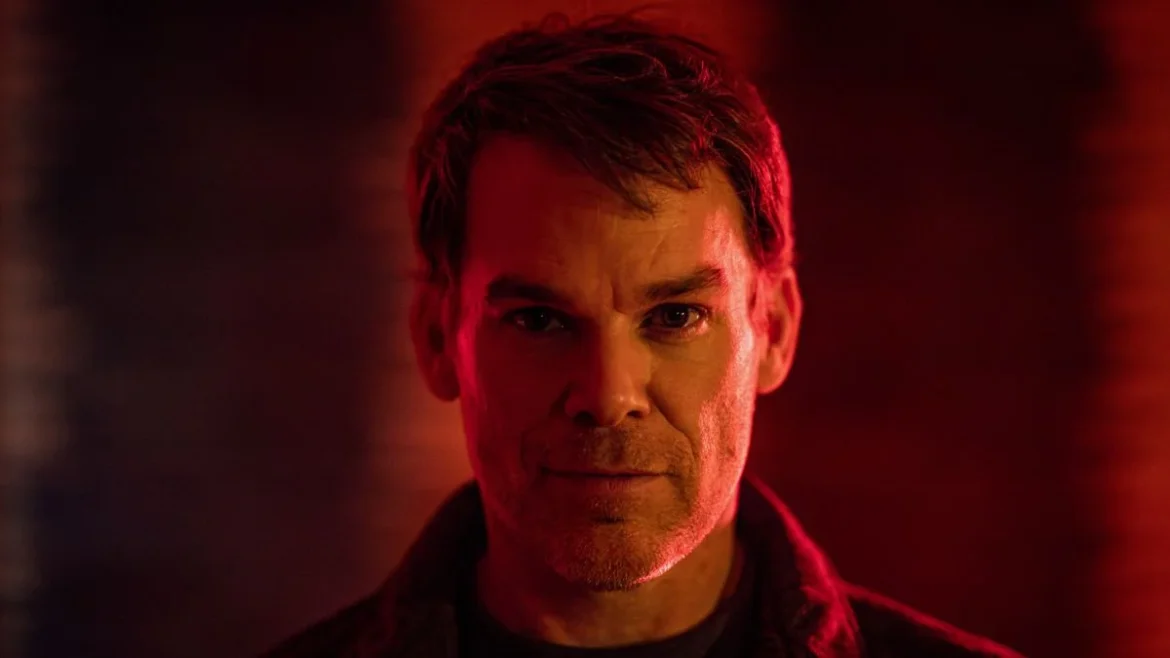Michael C. Hall as Dexter Morgan in “Dexter: Resurrection” (Credit: Zach Dilgard/Paramount+ with SHOWTIME)
Warning: This text is riddled with sporadic mentions of the 8 seasons of Dexter, Dexter: New Blood, as well as some spoilers for the first three episodes of Dexter: Resurrection.
“Tonight’s the night. And it’s going to happen again, and again. It has to happen. It’s not what I want. But what I want doesn’t matter. This is the only way I know how to survive. I’m coiled and ready to strike.”
Lurking between the lines of his monologue, you could almost hear: I’m the snake, so don’t tread on me. Bite you hard if you disagree.
Better known for his passion for killing, the Miami blood-spatter analyst, now back at it in New York in Dexter: Resurrection, has always walked a strange line. Not just between good and evil, but between murder and moral philosophy. Strip away the knives and the plastic wrap, and what you find is a man weirdly close to living out libertarian ethics.
Don’t believe me? Think of how often Dexter ran the perfect libertarian script.
Remember the times he skipped over the drug users and dealers, letting them exercise their own choices, and saved his knives for those actually violating the rights of others.
The days he crossed paths with coyotes who preyed on migrants and he made sure they’d never claim another life. One could imagine a horrid MAGA version of Dexter, where he would have gone after the desperate families fleeing Cuba across the ocean.
The many instances he put on his table the district attorneys and corrupt cops.
The occasions where he crossed his path with billionaires such as the oil tycoon, Edward Olsen in New Blood and yet didn’t seek to slice him up in some call of social “justice” and redistribution of his wealth. He was quite certain the industrious capitalists did not meet the code.
Or recall the cubic meters of plastic sheets and bags he dumped into the ocean — an act of defiance against environmentalism so bold it could make even Alex Epstein squirm.
Yes, Dexter has always leaned toward libertarian sensibilities. He may be a serial killer, but one with an uncanny instinct for individual rights. Harry’s code in that sense, can be distilled down to the non-aggression principle. “Don’t kill an innocent” echoes Ayn Rand’s cleaner phrasing in her essay “Man’s Rights”:
“The precondition of a civilized society is the barring of physical force from social relationships. … In a civilized society, force may be used only in retaliation and only against those who initiate its use.”
He might have been a perfect libertarian, if not for his day job in a police department. Still, one can excuse the detour into the heart of darkness when it is in the service of saving innocents from the system’s incompetence. Dexter is living proof of the state’s failure: a monopoly on force that cannot keep its promises. Even if he often errs on the more morally dubious utilitarian grounds. The new revival gives him a fresh frontier in his war for individual rights: taking on the murderous NIMBY.

Michael C. Hall as Dexter Morgan in “Dexter: Resurrection.” (Zach Dilgard/Paramount+ with SHOWTIME)
Tonight’s the Night… for Zoning Reform?
While almost all NIMBY’s have to them a murderous if not intent then effects, there is one particular NIMBY advocate that requires Bay Harbour Butcher’s full attention.
In the second episode of Dexter: Resurrection, his entrance to the story makes a second Dark Passenger. A serial killer, who picks up Ubers waiting for other passengers and then slowly strangles the driver with a wire saw, while asking who will miss them before finishing the kill.
Killer’s motive is NIMBYism in its purest, bloodiest form. He blames rideshare drivers for wrecking his father’s career as a traditional cabbie. Yet what ruined him wasn’t Uber but the state-created medallion racket, an artificial monopoly that collapsed the moment consumers were given a freer, cheaper alternative.
After watching his father lose everything on that government-backed “asset” and then take his own life, the Dark Passenger channels his rage not at the politicians and regulators who designed the scam, but at the drivers who dared to compete. His revenge spree against Uber drivers is a grotesque stand-in for the same protectionist impulse that fuels taxi cartels and NIMBY zoning boards alike: if innovation threatens my turf, kill it.
Dexter does what Dexter always does best: he goes on a hunt. To catch the Dark Passenger, he befriends countless Uber cabbies and then joins the rideshare scene as a driver. It is a new kind of double life: balancing star ratings instead of blood slides, and waiting for that one passenger to get in his car. The Bay Harbour Butcher’s latest crusade is a grisly reminder that the real crime scene is your local zoning board.
